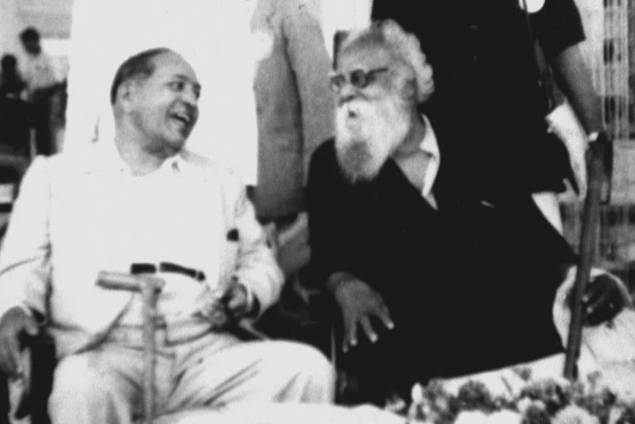
The structural politics that was once characterised by the back-to-back struggles that the toiling masses were forced to undertake has now considerably declined, or is being completely replaced by electoral politics.
Arguably, electoral politics has taken a new turn in that everyone, including the leaders of the vulnerable sections, wants to be a part of the ruling power which is seen by many as the realm of the possible rather than standing with the idea of the ideal.
Thus, the realism that defines the political mood expresses itself in the language of the “politics of the possible.” It is this turn that should compel us to offer a critique of such politics and encourage us to rearticulate an alternative conception of politics. Such politics must be interpreted in terms of the realisation of life conditions based on a moral minimum criterion. Such a criterion is universally valid inasmuch as it seeks to respect the individual as a thinking being, and suggests life with dignity and conditions in which a person is assured of being simply alive. The fundamental question that one has to raise is: Does a realist turn in electoral politics address the need for a society with a morally minimum life?
Let us lay bare the defining contours of the realistic element and expose its inadequacies in terms of it achieving the moral minimum. A critique of the realist politics can acquire its force only in the latter’s discursive exclusion from an alternative conception of pure or ideal politics. Put differently, a pure or ideal alternative conception of politics has to do with a process that has moral and intellectual rigour and seeks to overcome politics based on strategies driven by calculation and manipulation. The idea of pure politics, thus, is the critique of the realist forms of politics.
What is paramount in politics by strategy is the particular concerns about creating and augmenting social, cultural, and material assets on the one hand and completely avoiding or
accommodating liabilities on the other. The ruling party, due to its commanding position in the framework of distribution of patronage, can afford to be “generous” in terms of ccommodating those leaders who, in actual electoral arithmetic, are a liability, but are socially necessary to build up an inclusive image of a strong ruling party. Put differently, such seekers of power would find the parties of the poor a permanent liability.
Ideally, one requires the conviction of emancipatory purpose to join such parties. This conviction was evident in those prominent non-Dalit leaders who had joined B R Ambedkar’s Independent Labour Party (ILP) in 1936. Of course, one can raise the legitimate question: Do Dalit parties today contain the essence of the ILP?
The powerful ruling parties find something positive in such in-migration. For such parties, it is positive inasmuch as it accommodates in its opportunity structures those who claim to have been neglected by other parties. It may also validate claims that it is an inclusive party. Can one conclude that such a party is practising a pure form of politics? Does the act of being positive in such cases provide sufficient defining conditions of pure politics?
Let us take into consideration the contemporary claims that are made by some about positive politics. Political observers tend to interpret the Bharatiya Janata Party’s (BJP) spectacular success in reserved constituencies as the possible “end” of castiest politics. Such observations assign a positive dimension to electoral politics. However, this is the most subsidised conception of justice. The BJP could have assigned more weightage to the substantive conception of social justice had they got the Scheduled Caste and Scheduled Tribe (SC/ST) candidates elected from general constituencies by deploying a universal criterion. This could have been a real step forward in undermining the caste consciousness that continues to be strongly entrenched in society. This expectation is also valid in regard to the question of minority and women’s representation.
Getting a large number of SC/ST candidates elected from the reserved constituencies, at least in a comparative sense, does enhance the esteem of the self who feels superior to their natal social group. But, the question that has a bearing on ideal or pure politics is: While electoral politics helps these legislators enhance their self-esteem, does it help them enjoy self-respect and stand with their heads held high?
This asymmetrical positioning discourages not only SC/ST members, but other members of Parliament too from independently asserting their equal worth across different public institutions and the public sphere. Arguably, the dominant leaders’ “cultic force” of which they are the beneficiaries pacifies them into not asserting their worth. The unequal and hierarchical distribution of recognition which is internal to a hierarchical party structure essentially underlies an ascending sense of reverence for a particular leader. It undermines reciprocal recognition that is constitutive of pure politics as it is based on the principle of a person carrying equal moral worth. Much more importantly, an asymmetrical relationship in electoral politics necessarily results in pushing these representatives away from the pure politics of the moral minimum.
Author is Editor of the famous Economic and Political Weekly
Published in Vol. 54, Issue No. 24, 15 Jun, 2019
https://www.epw.in/journal/2019/24/editors-desk/scaling-%E2%80%98pure%E2%80%99-politics.html











































